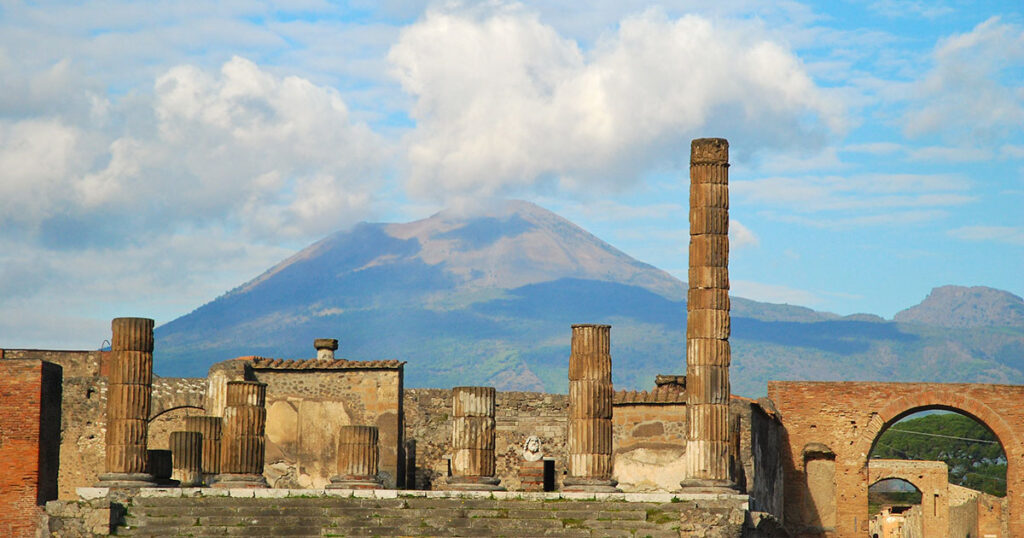
“The terrible day dawned prettily,” writes Joan Acocella of the eruption of Vesuvius in the first century, reviewing a book about Pliny the Younger, who witnessed it. The choice of terrible for a day that was horrendous, unspeakable, horrifying, and calamitous caught my attention. It struck me as weak. We all have terrible days—the dog escapes, the meal burns, the children bicker, it rains before you can cut the grass, and then as you hurry to bring in the clothes from the line, you stumble and spill the basket into that tall, wet grass, whereupon it starts to really rain. And when you want to soak away your stress in a hot bath, you find the water heater has broken. A terrible day! At the end of it, you crawl into bed, spent, ready for oblivion, and so relieved to have done with it that you actually smile. When Vesuvius erupted, many hundreds burned, many hundreds suffocated, whole towns drowned in lava or ash. No one near Vesuvius smiled. Many didn’t get to the end of their day. And this was only terrible?
I read about this in May, during the time of confinement in Spain, as I was catching up on my New Yorkers, going slowly, enjoying them. I’ve never been to Pompeii, never even been to Italy. This was my chance to pretend.
Sometimes terrible is not only terrible, but much stronger. To have a terrible wound or a terrible hunger, or to be terribly tired or face someone’s terrible anger. But in these cases it’s the doubling through combining with a known negative that accounts for the force. Should Acocella have called it a terribly bad day?
Of course not. She’s a good writer. Instead of laying down a string of adjectives and adverbs, she gives you the evidence of how bad a day it was: the layers of ash and pumice, the vitrified brain matter, the skeletons, the loaves left baking in the ovens, and the Resin Lady, made from the vacant space occupied by a woman’s body that was face down and spread-eagled on the floor, the five silver and seven bronze coins from a pouch she carried still within reach. Acocella knows what she’s doing: she shows rather than tells, describing a scene that any decent person, she states, turns away from, ashamed of viewing. As I said, she’s a good writer. “Good?” you wonder. Just good?
Yes, good. Were I to say nothing else, it would be faint praise. Instead it’s not praise at all. It’s not even an assessment of quality. It’s the broadest of classifications, a road sign. Birds singing ahead! Children playing! Pay attention! A canto de pájaro y gracia de niño, no convides a tus amigos, say the Spanish, meaning don’t invite your friends to hear the bird sing or see the charm in the child. Birds and children perform for reasons we can’t count on, suggests the saying, and might not put on a show on demand. Writers are different: creatures who love to perform, hence Acocella with just the right words, pointing here and there, as if guiding her reader through the ruins of Pompeii. It doesn’t have to be Pompeii, or a book about Pliny; it could be commentary on dance or literature. I’d go anywhere with her.
“So,” you ask, “good?”
“Why yes, good. Go have a look.”
Read an article. Read more than one. Sentences so plain and sturdy and so well joined to the next that you hardly notice the architecture of a piece, though it’s as solid as a fortress but light, airy, a pleasure to wander through. It’s true, it’s true. Mimicking Acocella, who flings open a door and trusts her readers to understand the spectacle, I will step aside rather than continue like an overeager tour guide spouting effusions. You’ll have your own. If, that is, you’re a good reader.

